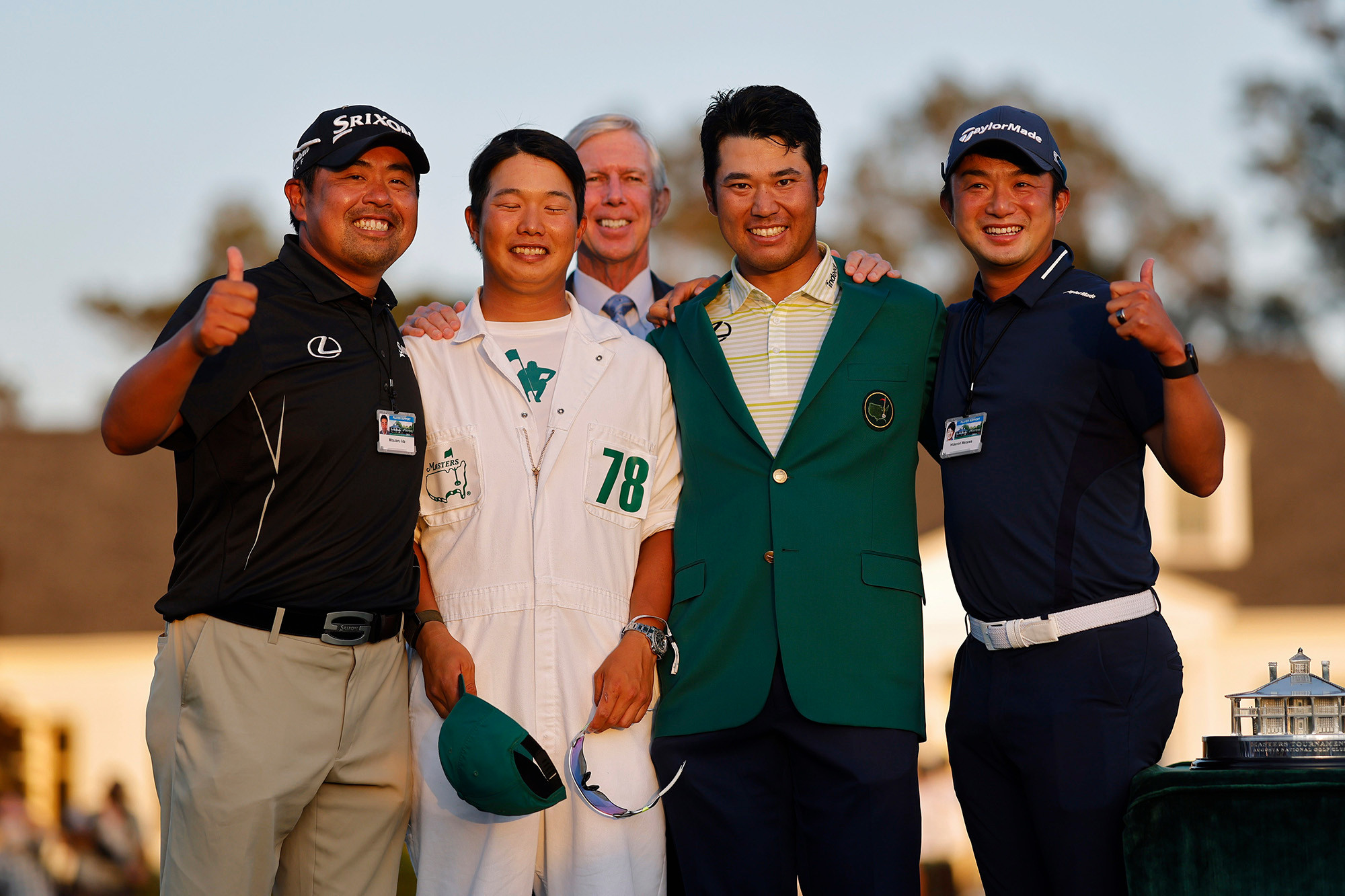More On: golf
Collin Morikawa wins British Open on his first try
Tyrrell Hatton destroys club, gives fan the finger at British Open
Phil Mickelson in dead last at British Open after abysmal 10-over
Brazen fan walks onto course, steals club out of Rory McIlroy’s bag
Ex-Masters champ Ángel Cabrera gets two-year prison sentence for domestic violence
AUGUSTA, Ga. — The shepherd was dressed in a white Masters cap, a collared short-sleeve shirt and dark blue slacks, and he looked like your average 68-year-old bank executive in your average golf
More from:
Ian O'Connor

Why Bryson DeChambeau may never win the Masters
Jordan Spieth's mental toughness has shades of Michael Jordan
Cameron Champ wants to put his Masters platform to good use
This Masters can be memorable without Tiger Woods
Scottie Scheffler has shot to be first New Jersey-born golfer to win Masters
AUGUSTA, Ga. — The shepherd was dressed in a white Masters cap, a collared short-sleeve shirt and dark blue slacks, and he looked like your average 68-year-old bank executive in your average golf gallery. But Bob Turner was not some well-connected fan who scored a ticket to an Augusta National on Sunday downsized by the pandemic.
No, Turner was the most obvious American reason why Japan now has a men’s major champion for the first time.
He is far more than Hideki Matsuyama’s interpreter. Turner is his logistics man, transportation man and tournament entries man. He is to the golfer what a “body man” is to a United States president. Turner is the one who helped make Matsuyama comfortable enough in a foreign land that he could win Jack Nicklaus’ tournament in Ohio as a 22-year-old, become a five-time PGA Tour winner, and make history in his native country by winning the game’s most prestigious tournament a world away in the Georgia pines.
More than anything, Turner is Hideki Matsuyama’s good friend. He wasn’t just at the champion’s side during his interview in Butler Cabin, or in the main media center. Turner was at his side the entire week, on and off the course, just like he has been for years, trying to steer his man to a magical moment that was nearly 50 years in the making.
The journey started in 1972, when Turner, a Brigham Young student and member of the Church of Jesus Christ of Latter-day Saints, left for a two-year mission in Japan. He met the woman who would be his wife, returned to the U.S., and then, after his wife, Hiroko, grew homesick, headed back to Japan to finish his studies and play golf at Tokyo’s Waseda University, which had one of the nation’s 10 best golf teams. He was the only American playing collegiate golf in Japan, and one day a tournament director asked him, “What the heck are you doing over here?”

The man offered Turner a job in the golf industry, and soon enough he was helping Seve Ballesteros, Sam Snead and Johnny Miller when they arrived in Japan. Back in the States years later, Turner’s son Allen would work as an interpreter for Seattle Mariners stars Kazuhiro Sasaki and Ichiro Suzuki. Sasaki had attended Matsuyama’s university, Tohoku Fukushi, which would compete in tournaments in Seattle. The school’s golf coach would ultimately ask Turner, who was working for his father, to help Matsuyama get acclimated to Augusta after a 19-year-old Hideki qualified for the Masters in 2011, when he finished as low amateur.
“And here we are,” Bob Turner said off the first fairway Sunday, hours before his friend would end up in a green jacket.
Turner looked a bit stressed after Matsuyama bogeyed No. 1 and turned his four-shot lead over Xander Schauffele into a three-shot lead. Just not too stressed. As he walked the course and talked to two reporters, Turner compared Matsuyama’s passion to Ballesteros’s. “Seve used to tell me, ‘Bob, I hole out on Sunday and pack up and just couldn’t wait to get to the next tournament.’ ”
Turner told a story about Matsuyama’s first U.S. Open, at Merion, in 2013, when he shot a final-round 67 to finish tied for 10th. It had been a long, wet, draining week at Merion, with serious logistical challenges, and Turner figured it was a wrap after his player cleaned out his locker and headed to a parking lot near the practice range.
Matsuyama told his interpreter he wanted to hit some balls.
“Aren’t you tired?” Turner asked.
“Bob,” Matsuyama responded, “look at this beautiful practice range. We can’t let it go to waste.”
Matsuyama pounded away for an hour. “I knew then that this is somebody special,” Turner said.
He had to be special Sunday to overcome his second shot on the 15th hole, where he held a four-stroke lead. Matsuyama knocked his approach over the green and into the water, and barely scrambled to make bogey while Schauffele was making birdie to cut the lead to two.
Schauffele was the one who folded on the next hole, when he put his tee shot in the water on the way to a fatal triple bogey. Matsuyama missed his par putt, but in the end it didn’t matter. He made par on 17 to keep his two-stroke advantage on Will Zalatoris, and then tapped in for bogey on 18 to join Tsubasa Kajitani, Augusta National Women’s Amateur winner, as Japanese champs on these grounds.
Turner’s job was just starting then. The 68-year-old American who made lifelong friends with his Waseda teammates and still regards them as brothers decades later had to steer his friend through a maze of media obligations.
“I’m not a translator,” Turner explained. “I could translate word for word. I’m an interpreter. I hear what he’s saying, and then I try to say it as an American, or someone who speaks English, would say the same feeling.”
Turner takes pride in taking his player’s temperature and matching his cadence. “I guess I’m processing it from here,” he said, pointing to his heart, “rather than from here,” he added, pointing to his head.
But before the post-tournament proceedings started, Hideki Matsuyama gave Bob Turner a warm hug behind the 18th green. No interpretation was required.
This story originally appeared on: NyPost - Author:Ian O'Connor






















